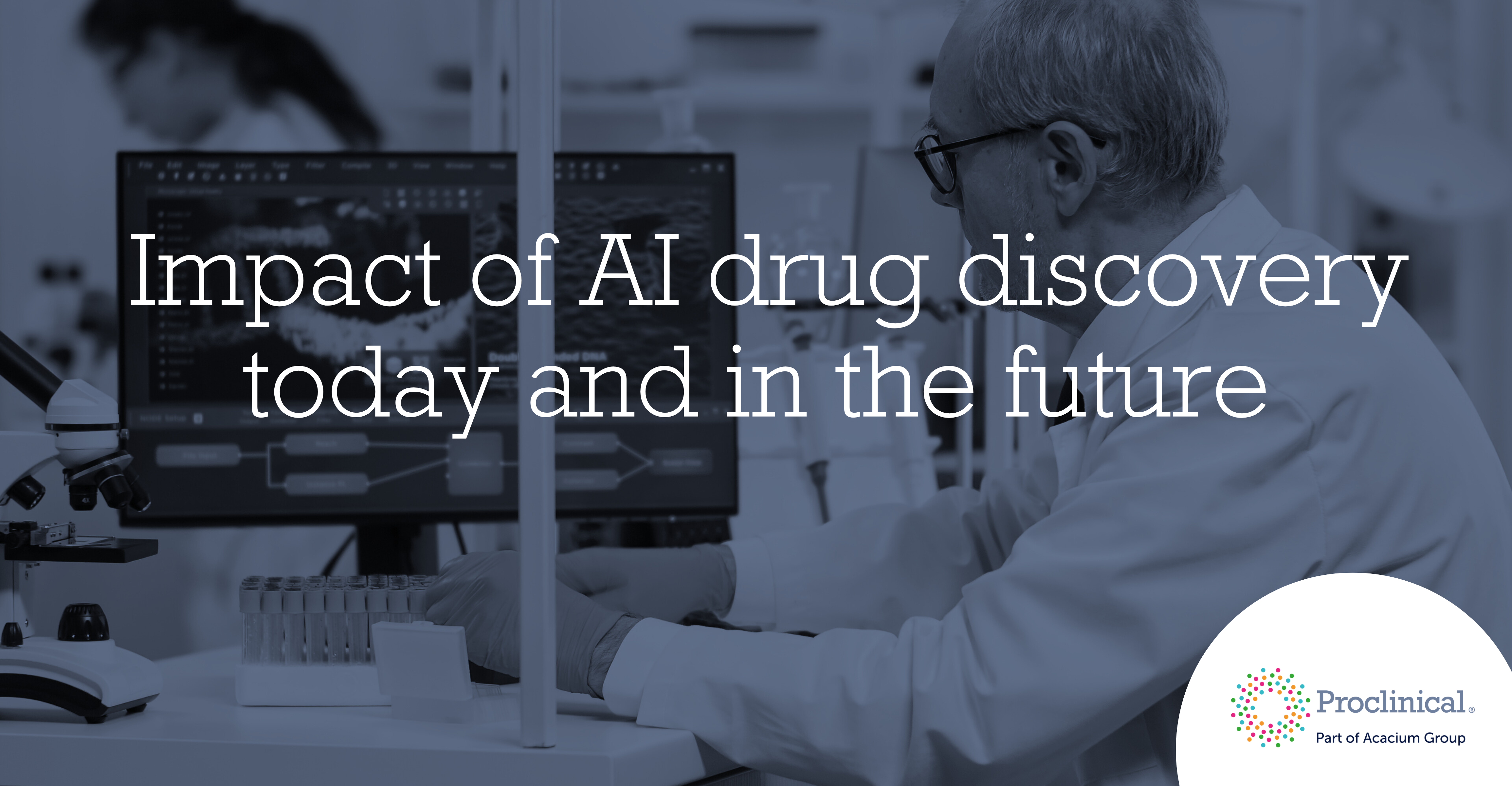.png?v=ff75bfd97bb9becfc47a96e5ef85f3c5)
À±½·ÊÓƵ
Impact of AI drug discovery today and in the future
Artificial intelligence (AI) has been used in drug discovery for decades, but only recently have life science companies started using it to accelerate the development of treatments for various conditions and diseases. With an ageing population, researchers worldwide have been seeking to fast-track drug discoveries, especially as new illnesses and conditions continue to emerge.
However, with many regulatory hurdles to overcome, the journey to finding new drugs has become financially riskier, slower, and more costly. It typically takes 10-15 years to bring drugs to market after their initial discovery. In addition to passing through regulatory bodies, new drugs must be rigorously tested in clinical trials, where 90% of candidates fail, either because they do not effectively treat the illness or the side effects are too severe. Although there is still a long road ahead, AI is enabling potential drug candidates to be identified more quickly, reducing costs, improving safety, and holding significant potential for getting medicines into the hands of patients faster.
How AI is used in drug discovery
AI drug discovery is a blanket term for the different computer techniques that pharmaceutical researchers use to identify and create new medicines. The two main ways that AI leads drug discovery research is through machine learning and natural language processing (NLP). Machine learning is trained to spot patterns and match statistical data. Whereas NLP uses human language to gather data from previous trials, similar literature and other textual data.
Other ways that AI is used in the drug discovery process include:
Drug target identification
During the initial stages of research, AI machine learning will be used to map out the potential various datasets of compounds to see how their properties match possible diseases they can cure.
Compound screening and design
Researchers can bypass physical testing by running simulations with AI as it identifies different compounds and molecules to help treat different diseases.
Predictive modelling and optimisation
Researchers can use AI to predict the outcomes of the developing medicines identified in preclinical and clinical stages of research, they can use this information to prioritise which drug compounds to advance.
Milestones in AI-led drug discovery
First of all, the recent use of AI drug discovery in the pharmaceutical sector is a milestone. The fact that researchers can streamline their testing process before a drug reaches clinical trials is a feat that should not be underestimated.
While there are currently no approved drugs on the market that were discovered using AI, the first AI-led drug development to reach clinical trials was a drug by Exscientia and Sumitomo Dainippon Pharma in 2020.
As of 2024, the very first AI drug discovery from Insilico Medicine is in Phase II clinical trials. It is the first drug of its kind and took 18 months to design for human testing, which is about a third of the time it would normally take.
Growth areas in AI drug discovery
AI is rapidly transforming drug discovery in the pharmaceutical landscape. It can increase the potential development of new drugs that will treat some of the most formidable diseases.
Key ways in which AI will benefit drug discovery include:
Time savings
AI will reduce the amount of time it takes to develop new drugs and introduce them to the market.
Investment growth
The growing relationships between pharmaceutical companies and AI-led specialist companies will gather attention from investors. In 2023 alone, the sector was estimated to have reached US$1.5bn in market size and is expected to grow to US$3.7bn by 2027.
Patient safety and prioritisation
As AI advances, the quality of data it generates and uses will improve. Plus, its ability to analyse biomedical data will help researchers to forecast the efficacy of trial patients.
Drug repurposing
There is a potential for AI to analyse existing drugs to determine their suitability in treating novel illnesses.
Challenges of using AI in drug discovery
While AI offers the potential for improvement and increased efficiency in drug discovery and testing, researchers and scientists have to overcome a number of challenges in the field, including:
Availability of quality data
There are challenges in the AI drug discovery field relating to the data that is being collected and used. It is not always available nor is it of sound quality. As the biotech sector progresses, it must ensure that the quality and quantity of usable data matches the demand.
Data standardisation
While it is good to ensure that data used in AI drug development is of acceptable quality, it is also important to have procedures in place that standardise the data for future usability and to allow the AI tool to produce accurate results.
Integration into traditional methods
The introduction of AI into drug discovery process is still in its infancy. AI is not yet integrated into many of the more traditional parts of drug development. It will take considerable resources and time to fully implement and use artificial intelligence throughout this process.
Looking ahead: The future of AI drug discovery
AI is redefining the way drugs are brought to market and this is set to continue into 2025 and beyond. The investment in the sector has been predicted to show steady growth, enabling innovation, time spent developing new drugs and money saved. An increasing number of pharmaceutical companies will collaborate with more AI-led specialists to create new and innovative ways to develop drugs to treat some of the most challenging-to-treat diseases.
Additionally, the development of AI in drug discovery will help to refine large amounts of data by creating a formal standardisation for researchers to follow. This will provide opportunities to discover new drugs and uses for existing ones by Increasing the accuracy of the data processed.
Discover pharmaceutical opportunities with À±½·ÊÓƵ
At À±½·ÊÓƵ, we specialise in recruiting for various pharmaceutical positions. If you're seeking a new opportunity, you can either submit your CV directly or use our job search tool to discover the ideal role for you.

.png)

.png)


.png)
.png)




.png)













